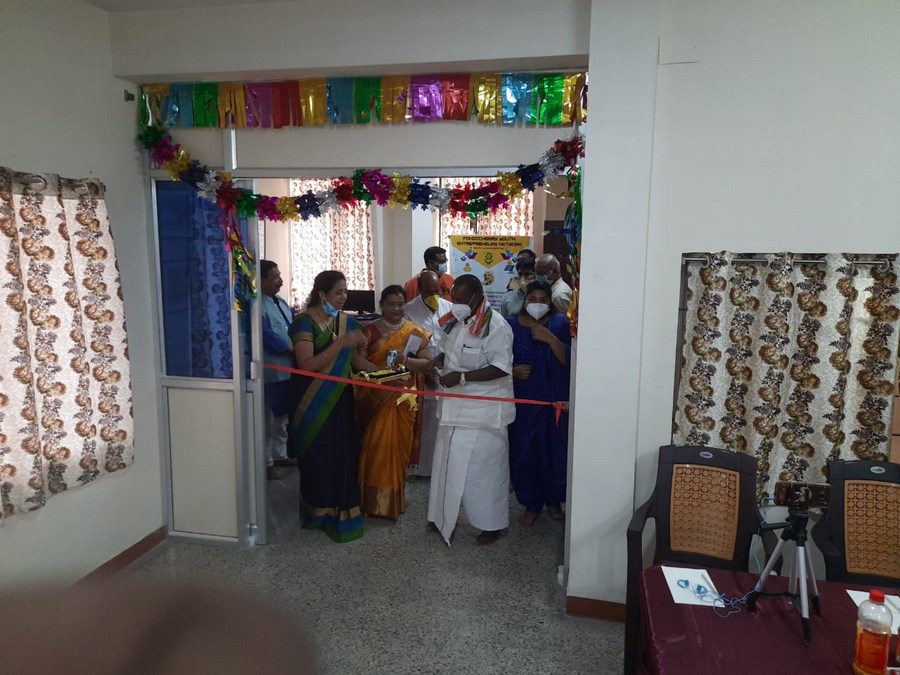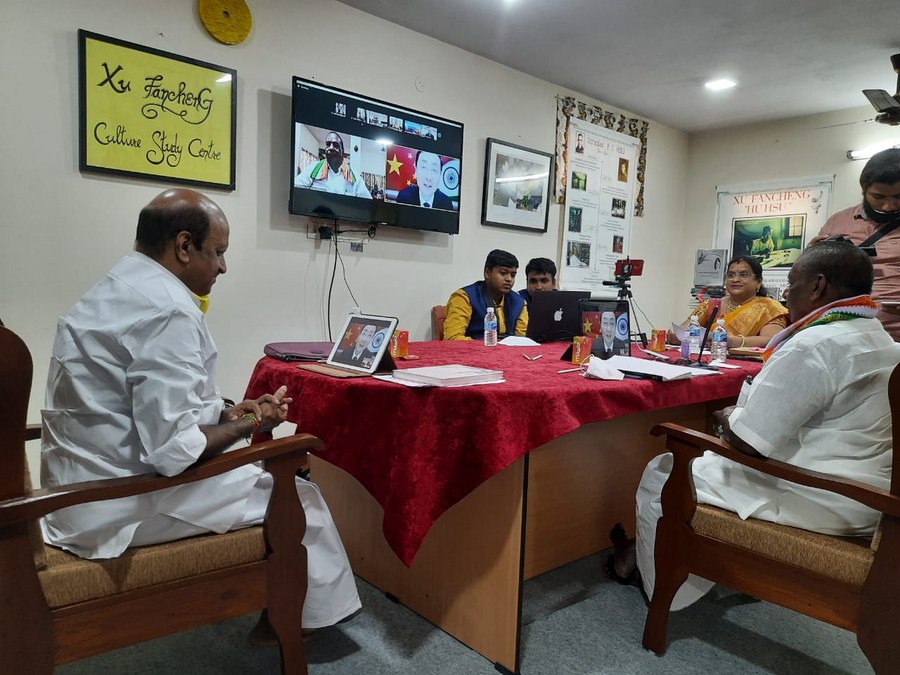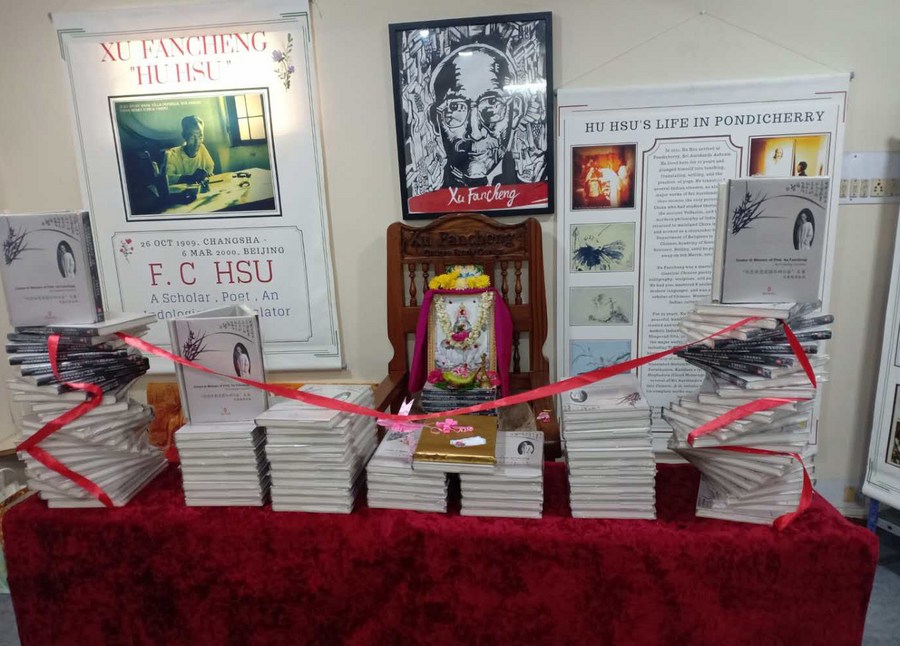
Xu Fancheng Culture Study Center was inaugurated in Pondicherry in southern India. (Photo courtesy of Pondicherry India China friendship association)
Xu Fancheng Culture Study Center aims to study Xu's academic achievements, enhancing cultural exchanges between the two countries, and boosting the friendship between the two peoples.
by Xinhua writer Hu Xiaoming
NEW DELHI, Nov. 1 (Xinhua) -- He was a translator, an indologist and a philosopher. He was a Chinese scholar but had worked and lived in India for 33 years. His name was Xu Fancheng.
A culture study center named after him was inaugurated recently in Pondicherry in southern India, 111 years after his birth.
"It is hoped that the center can inherit and carry forward the spirit of Prof. Xu Fancheng's rigorous scholarship, introduce his life and research results to the two peoples, enhance the cultural and academic exchanges between China and India, and let the seeds sown by Prof. Xu Fancheng blossom and bear fruits in the new century," Chinese Ambassador to India Sun Weidong said when inaugurating the center online jointly with Pondicherry Chief Minister V. Narayanasamy.
The Xu Fancheng Culture Study Center was established by the India-China Friendship Association of Pondicherry, India, with the aim of studying Xu's academic achievements, enhancing cultural exchanges between the two countries, and boosting the friendship between the two peoples.
 The center aims to study Xu's academic achievements, enhancing cultural exchanges between the two countries, and boosting the friendship between the two peoples. (Photo courtesy of the Chinese Embassy in India)
The center aims to study Xu's academic achievements, enhancing cultural exchanges between the two countries, and boosting the friendship between the two peoples. (Photo courtesy of the Chinese Embassy in India)
Xu Fancheng (1909-2000), also known as Hu Hsu in India, was familiar with Greek, Latin, English, French, as well as Sanskrit and German.
Both boasting ancient civilizations, China and India have a long history of cultural exchanges. In the 7th century, Chinese Buddhist monk, scholar, traveler and translator Xuanzang traveled to India and brought Buddhist scriptures back to China. Some 1,300 years later, Xu came to India at the age of 36.
In his 33 years of life in India, Xu systematically translated classic Indian philosophical works into Chinese. He also introduced the Indian thinker Sri Aurobindo to China. He taught Chinese culture in India for a long time, and translated a large number of Chinese classics into English, which opened an important window for people in India and around the world to understand China.
From 1951 to 1978, Xu lived in Pondicherry at the Sri Aurobindo Ashram, where he translated various Indian classics such as Bhagavad Gita and Fifty Upanishads from Sanskrit into Chinese, and also wrote books, including on Confucianism, in English to introduce China's ancient classics to India and the world.

Xu's work on cultural exchanges has opened an important window for people in India and around the world to understand China. (Photo courtesy of Pondicherry India China friendship association)
After returning to China at the age of 69, Xu became a professor at the Chinese Academy of Social Sciences. A 16-volume edition of his complete works was published in 2006 in China.
In 2018, a symposium in his memory was held in Pondicherry.
Inaugurating the symposium, then Chinese ambassador Luo Zhaohui, who is also one of Xu's students, said Xu has "played a role of bridge, linking the people of China and India."
"Looking back into the history, prominent masters like Xuanzang, Faxian and Bodhidharma travelled long distances between India and China. (Rabindranath) Tagore, Tan Yunshan, Xu were pioneers to promote China-Indian cultural exchanges in modern time," Luo said.
"Today as we are standing on the shoulders of the history, we should do better than our forefathers in cultural exchanges," Luo added.■



